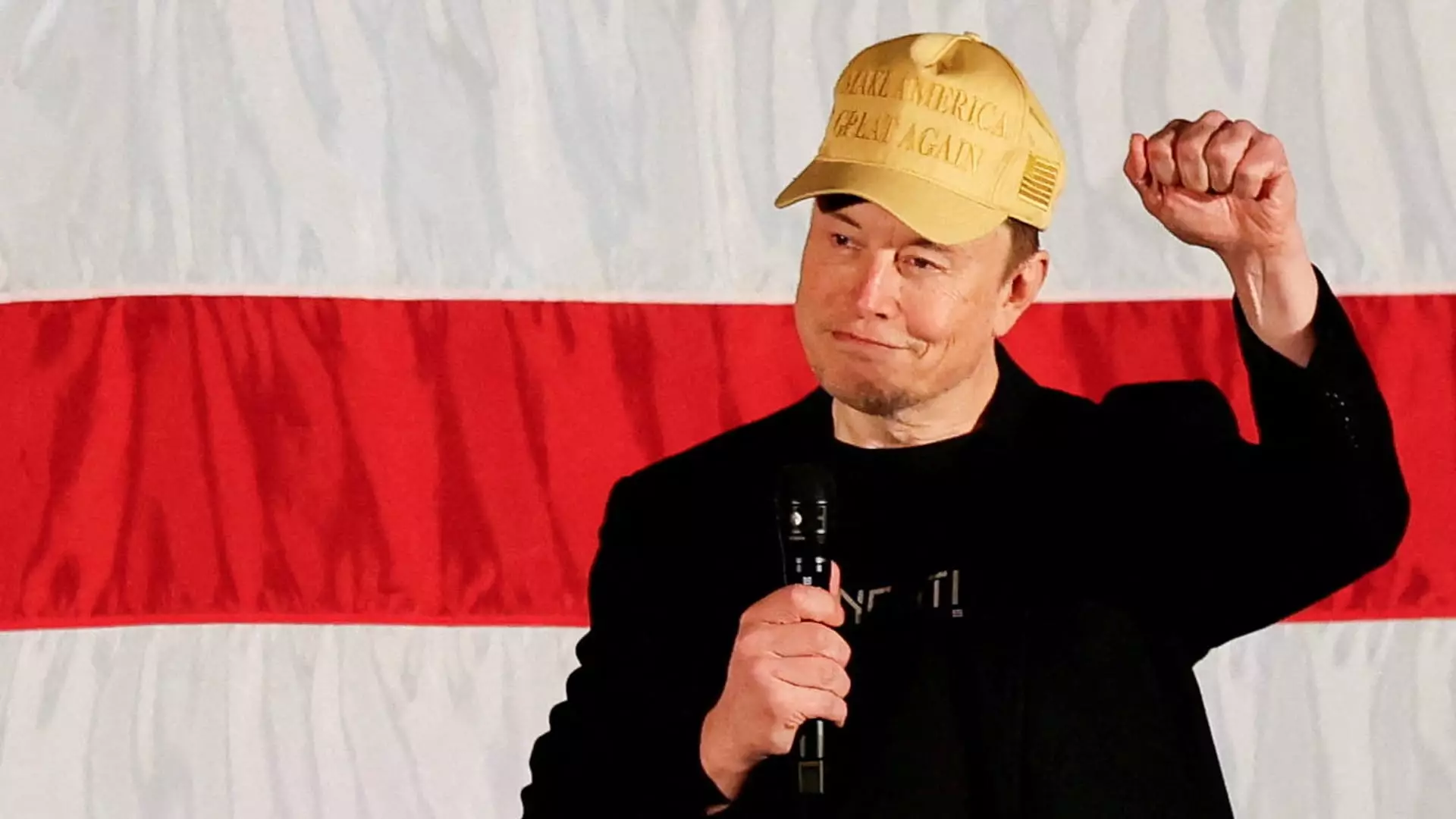This past Saturday, Elon Musk, the billionaire entrepreneur behind Tesla and SpaceX, made headlines with an audacious announcement: he plans to award $1 million daily to registered voters who sign a petition supporting his pro-Trump political action committee. During an event organized by America PAC in Harrisburg, Pennsylvania, Musk proclaimed, “I have a surprise for you,” before handing a hefty check to a voter present at the rally. His initiative aims to motivate voters in swing states—Arizona, Georgia, Michigan, Nevada, North Carolina, Pennsylvania, and Wisconsin—just days before voter registration deadlines.
However, this quirky announcement raises concerns about ethical and legal implications that could reverberate through the electoral landscape.
Riding the Wave of Controversy
Musk’s venture is framed as an effort to bolster voter turnout but is steeped in controversy. Election law expert Rick Hasen from UCLA warns that Musk’s initiative likely contravenes federal laws, which prohibit paying individuals for their votes or for registering to vote. Hasen emphasized that society has long agreed that certain democratic processes should remain free from financial influence, signaling that Musk’s plan could foster a dangerous precedent. His actions raise critical questions about the integrity of the electoral process and whether financial incentives can unfairly sway voter behavior in favor of a specific political agenda.
Moreover, critics argue that solutions to increase voter participation should be rooted in education and civic engagement, not financial motivation. Such concerns reflect a growing unease regarding the increasing intertwining of wealth and politics in the United States.
Elon Musk’s public persona as a tech innovator finds itself at odds with his emerging identity as a political figure. His allegiance to former President Trump has increasingly manifested in public appearances where he promotes unfounded claims of voter fraud and calls for deregulation. During the gathering in Pennsylvania, Musk characterized the state as the “linchpin” of the upcoming election, underscoring its significance in potentially swinging the outcome.
Critically, Musk’s remarks about the current administration are inflammatory, diminishing the discourse around political leadership. His insinuation that government officials are mere puppets further erodes public trust in elected officials and institutions. Such rhetoric fosters division and could potentially incite backlash against those in power.
The legality of Musk’s approach extends beyond simple controversy; it poses significant constitutional questions. As noted by experts, the principle of free and fair elections is critically endangered when financial incentives are introduced. Pennsylvania Democratic Governor Josh Shapiro expressed concern, suggesting that Musk’s act might lead law enforcement to investigate whether it constitutes a breach of election laws. Musk’s non-responsiveness to inquiries from media entities about the program signals a reluctance to engage with the potential ramifications of his actions, which could undermine his credibility.
The dialogue surrounding Musk’s initiative spotlights the inherent tensions between celebrity influence, financial power, and democratic principles. As more wealthy individuals enter the political arena, the relationships between money, persuasion, and voting behaviors demand scrutiny.
Trust in Government and Public Institutions
At the core of Musk’s messaging is a distrust of government, a theme he reiterated in Harrisburg by stating, “We should not trust the government, really.” This hostility toward regulatory bodies overlaps with his ongoing criticisms of the Federal Communications Commission, the Environmental Protection Agency, and others, a stance that raises eyebrows given Musk’s dependence on governmental support for many of his ventures.
His rhetoric highlights a paradox where a wealthy businessman critiques the very systems that have supported his entrepreneurial growth. Musk’s call for minimal government intervention stands in juxtaposition to the very nature of public policy that aims to regulate and protect essential public goods.
The evening was not solely focused on voter mobilization; it also broached the topic of self-driving cars, a much-touted goal of Tesla that remains unfulfilled. Attendees posed questions about the future of autonomous vehicles, and Musk seized the opportunity to reaffirm his belief that government mandates should be minimal. His suggestion that markets should naturally regulate themselves discounts the social and ethical responsibilities that accompany technological advancements.
The juxtaposition of Musk’s desire for unfettered market dynamics against the backdrop of ongoing public concerns about self-driving safety highlights a significant gap between technological capability and ethical responsibility. As the industry navigates the rough waters of innovation and regulation, Musk’s discourse reveals a concerning disregard for safety measures that have become fundamental in conversations around emerging technologies.
In reflection, Elon Musk’s recent actions and statements encapsulate a complex interplay between wealth, influence, and democratic integrity. While the desire to increase voter turnout is commendable, financial incentives do little to foster genuine engagement with the electoral process. The legal implications of such moves warrant scrupulous examination, urging a broader dialogue about the intersection of celebrity influence, ethical standards, and the sanctity of democracy in contemporary America. As citizens navigate this evolving political landscape, the imperative for transparency, accountability, and ethical engagement becomes paramount.


Leave a Reply